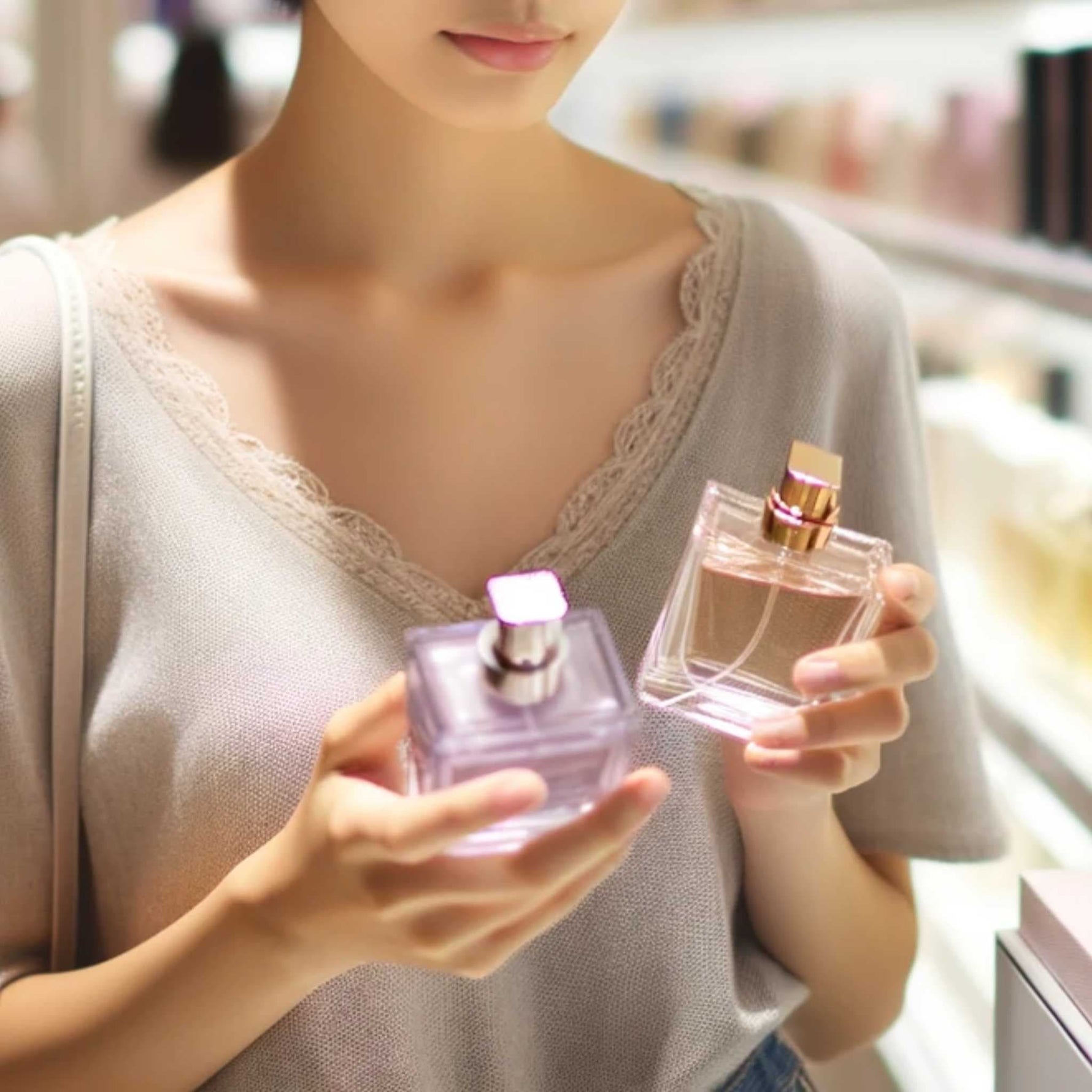You Asked For It: The Difference Between Perfume and Eau de Parfum, Explained
In the exciting and sometimes confusing world of fragrances, the terms "perfume" and "eau de parfum" are often used, but do we truly understand their differences? In this blog post, we will demystify the two terms, and turn you into a perfume vocabulary expert.
History and Context:
Perfume has a rich history, dating back to ancient civilizations where it was synonymous with luxury and sophistication. Over time, as perfumery evolved, different concentrations of perfume (like eau de parfum and eau de cologne) were made popular, as they catered to diverse preferences and budgets. Understanding this evolution helps appreciate just how much art and science is required for making fragrances.
Price Point and Luxury
A higher concentration in perfumes often translates to a higher price point, especially when rare or luxurious oils are used. However, the choice between perfume and eau de parfum should not solely be based on price but on the experience and personal preference. And one should remember that higher priced perfumes don't always smell better, despite the price tag.
Sillage and Longevity
Sillage, the scent trail left by a fragrance, varies significantly between these two concentrations. Perfumes, with their higher oil content, tend to have a more intimate sillage but longer longevity. Eau de Parfums, with a slightly lower concentration, might project a broader sillage but for a shorter duration.
The secret to why this happens is the alcohol content of the perfume. Alcohol is used to dilute the perfume oils, and evaporates off the skin, carrying with it all those lovely fragrance molecules. By not using any alcohol to dilute the perfume oils, the fragrance will last longer (no evaporation from alcohol), but the scent trail is weaker.
Versatility and Wear
While eau de parfum is sometimes considered more versatile for everyday wear, the choice between perfume and eau de parfum should be based on personal preference and the occasion. For instance, our fragrances like Say Less or Del Mar (EDPs) are perfect for making a bright impression, while La Tacita De Cafe and Midnight Whisper (Perfumes) offer a warmer, more intimate scent experience.
The Language of Fragrances
It's important to understand that not everyone uses these perfumery terms correctly. In some regions, "perfume" is used to denote any fragrance for women, and "cologne" for any fragrance worn by men, regardless of concentration. But now that you know the real difference, you won't be confused. Some fragrances designed for men are perfume concentration, and some fragrances designed for women are in eau de cologne concentration. The fragrances designed by Day Three Fragrances are unisex; they're designed to smell good, and can be worn by anyone who loves them!
Conclusion
The choice between perfume and eau de parfum is not just about concentration; it's about finding the scent that resonates with your personality and lifestyle. One great way to try different concentrations and perfume styles for yourself is to check out our best selling Discovery Set!
FAQs:
What is the main difference between Perfume and Eau de Parfum? The primary difference is the concentration of aromatic compounds, with Perfume having a higher concentration than Eau de Parfum.
Which lasts longer on the skin, Perfume or Eau de Parfum? Generally, Perfume tends to last longer due to its higher concentration.
Is Perfume more expensive than Eau de Parfum? Typically, yes, due to the higher concentration of fragrance oils.
Can I wear Eau de Parfum daily? Absolutely! Eau de Parfum is versatile and suitable for everyday wear.
About the author:
Michael Paul is an award winning perfumer, and the creator of La Tacita De Cafe Perfume. He's also co-owner of Day Three Fragrances. In his spare time, he obsesses over the perfect fragrance concentration for his latest creations. If you have questions about fragrance concentration, or other perfume related inquiries, feel free to email him at michael@DayThreeFragrances.com

